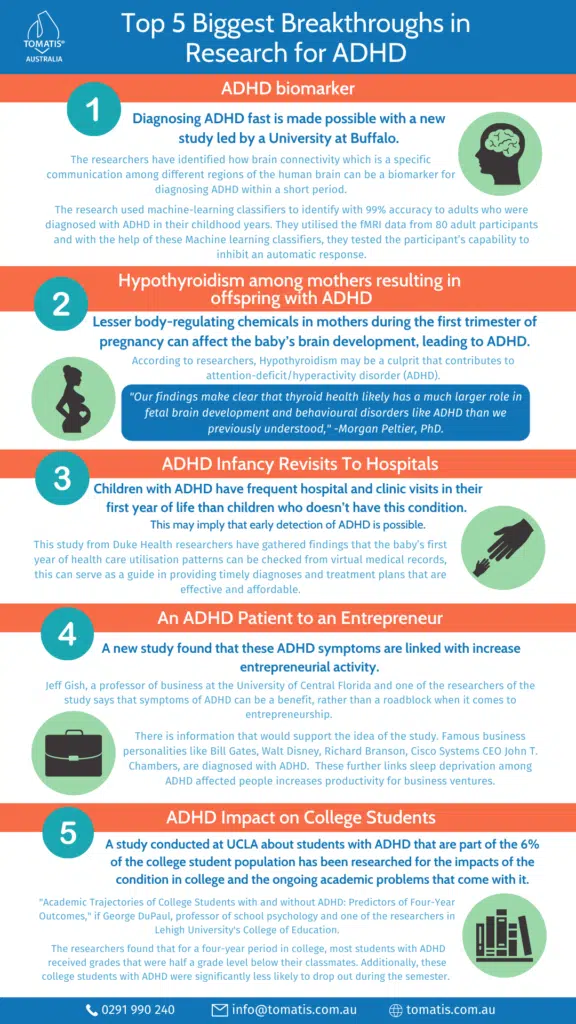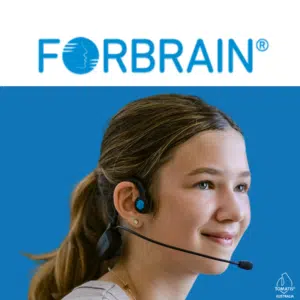SYDNEY, Australia – Are you looking for significant researches about ADHD in terms of prognosis, diagnosis, and available therapies?
Do you want to have a steady and updated knowledge about ADHD?
We’ll talk about the important breakthroughs about ADHD, particularly:
- New Researches on ADHD
- ADHD Biomarker
- Hypothyroidism among mothers resulting to offspring
- An ADHD Patient to an Entrepreneur
- ADHD Impact on College Students
I. New Researches on ADHD
ADHD biomarker
According to the DSM-5, there is currently no biomarker for this condition. However, diagnosing ADHD fast is made possible with a new study led by a University at Buffalo. The researchers have identified how brain connectivity which is a specific communication among different regions of the human brain can be a biomarker for diagnosing ADHD within a short period.
The team who led this research was composed of UB undergraduate research volunteers Cary Judson from the Department of Psychology and Dakota Handzlik in the Department of Computer Science and Engineering, and John G. Holden, an associate professor of psychology.
The research used machine-learning classifiers to identify with 99% accuracy to adults who were diagnosed with ADHD in their childhood years. They utilised the fMRI data from 80 adult participants and with the help of these Machine learning classifiers, they tested the participant’s capability to inhibit an automatic response.
Focused analysis of individual runs achieved 91% diagnostic accuracy, while the collective analysis came close to 99%. The findings is that it is effective in identifying ADHD and also aid professionals and doctor’s treatment plans by understanding the broad-continuum situation of the individuals with ADHD.








